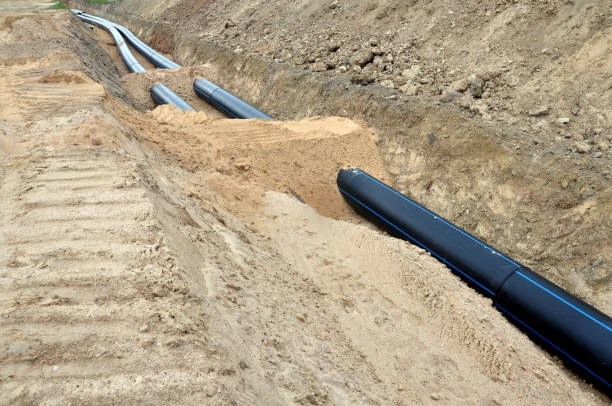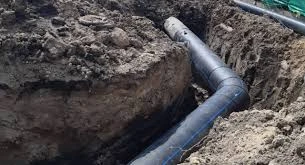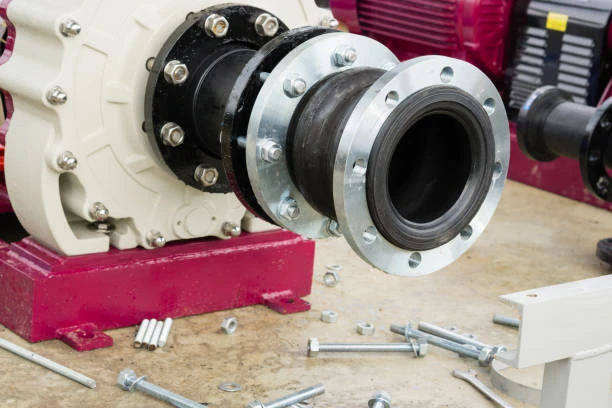In the bustling neighborhood of Mandaveli, VC Garden is turning to High-Density Polyethylene HDPE pipe to enhance its irrigation systems and bolster its sustainability efforts. This innovative approach not only aims to improve water efficiency but also showcases how modern agricultural practices can lead to sustainable gardening. In this article, we will delve into the significance of HDPE pipes for VC Garden, their benefits, applications, and how they contribute to sustainable practices in urban gardening.

Understanding HDPE Pipe
High-Density Polyethylene (HDPE) pipes are a popular choice in various industries due to their excellent durability, resistance to chemicals, and versatility. Made from thermoplastic materials, HDPE pipes are used extensively in water management systems, irrigation, and construction projects. Their unique properties make them particularly suitable for urban gardening applications, where efficiency and sustainability are paramount.
Key Characteristics of HDPE Pipe
- Durability: HDPE pipe have a lifespan of over 50 years, making them a long-term investment for gardens and agricultural projects.
- Flexibility: They can adapt to different ground movements and pressures, allowing for versatile installations.
- Corrosion Resistance: HDPE does not rust or corrode, ensuring reliability in various environmental conditions.
- Lightweight: Their reduced weight simplifies transportation and installation, making them user-friendly for garden projects.
- Eco-friendly: Being fully recyclable, HDPE pipes contribute to sustainable practices by reducing waste and promoting resource efficiency.
The Importance of HDPE Pipes for VC Garden
1. Enhancing Irrigation Efficiency
One of the primary reasons VC Garden has chosen to implement HDPE pipes is to improve its irrigation efficiency. Traditional irrigation methods often lead to water wastage and uneven distribution. HDPE pipes, with their smooth interior surfaces, minimize friction and promote consistent water flow. This ensures that every plant receives the right amount of water, optimizing growth and reducing resource waste.
2. Supporting Sustainable Practices
Sustainability is at the heart of modern gardening practices. By incorporating HDPE pipes into its irrigation system, VC Garden aligns itself with eco-friendly practices. HDPE pipes reduce water loss through leaks, which is crucial in urban environments where water conservation is essential. Additionally, their recyclability further enhances VC Garden’s commitment to sustainability.
3. Cost-Effectiveness
While the initial investment in HDPE piping may be higher than traditional materials, the long-term savings are substantial. HDPE pipes require minimal maintenance and have a long lifespan, resulting in lower operational costs over time. For VC Garden, this means more resources can be allocated towards other sustainable initiatives.
Applications of HDPE Pipe in Gardening
HDPE pipes can be applied in various gardening and agricultural settings, making them versatile tools for modern gardeners.
1. Drip Irrigation Systems
Drip irrigation is one of the most efficient methods for watering plants. HDPE pipes can be used to create a drip irrigation system that delivers water directly to the plant roots. This method not only conserves water but also promotes healthier plant growth by providing consistent moisture levels.
2. Rainwater Harvesting
Incorporating HDPE pipes into rainwater harvesting systems allows gardeners to collect and store rainwater for irrigation. This sustainable practice reduces reliance on municipal water supplies and minimizes runoff, contributing to better environmental management.
3. Hydroponics
Hydroponic systems can also benefit from HDPE piping. These systems, which grow plants in nutrient-rich water rather than soil, require reliable and efficient water delivery systems. HDPE pipes are ideal for these applications due to their durability and chemical resistance.
4. HDPE pipe Landscape Irrigation
For larger gardens and landscaping projects, HDPE pipes provide an effective solution for irrigation systems. They can be installed underground to minimize visual impact while ensuring that plants receive adequate water supply.
Benefits of HDPE Pipe for Urban Gardening
Using HDPE pipes in urban gardening offers numerous advantages that enhance sustainability and efficiency:
1. HDPE pipe Water Conservation
One of the most significant benefits of HDPE pipes is their ability to conserve water. Their durability and leak-resistant properties minimize water wastage, which is crucial in urban areas where water resources may be limited.
2. Environmental Sustainability
HDPE pipes contribute to environmental sustainability by being recyclable and reducing the carbon footprint associated with traditional piping materials. Their long lifespan means fewer resources are consumed over time.
3. Improved Plant Health
Efficient irrigation systems made possible by HDPE pipes lead to healthier plants. Consistent water delivery ensures that plants receive the nutrients they need, reducing the risk of disease and promoting robust growth.
4. Reduced Maintenance Costs
HDPE pipes require minimal maintenance compared to traditional materials. This reliability reduces the need for frequent repairs or replacements, allowing gardeners to focus more on cultivation rather than infrastructure upkeep.
5. Versatile Applications
The adaptability of HDPE pipes makes them suitable for various gardening techniques, including hydroponics, drip irrigation, and rainwater harvesting. This versatility allows gardeners to implement multiple sustainable practices simultaneously.
Market Trends in HDPE Pipe Production
The market for HDPE pipes is expanding, driven by various trends that highlight their growing importance in gardening and agriculture:
1. Increasing Urbanization
As urban areas expand, the demand for efficient irrigation systems rises. HDPE pipes are becoming essential in urban gardening projects, helping to meet the needs of growing populations.
2. Focus on Sustainability
With an increasing emphasis on environmental sustainability, many gardeners and agricultural businesses are turning to HDPE pipes as eco-friendly alternatives to traditional materials. This trend is driven by consumer awareness and regulatory pressures to adopt greener practices.
3. Technological Advancements
Innovations in manufacturing processes have improved the quality and performance of HDPE pipes. Enhanced production techniques allow for more precise specifications, catering to diverse applications in gardening and agriculture.
4. Support for HDPE pipe Water Conservation Initiatives
Many municipalities are promoting water conservation initiatives, which align with the benefits of using HDPE pipes. As a result, gardeners are increasingly adopting these pipes to comply with regulations and enhance their sustainability efforts.
Future Prospects for HDPE Pipe in Gardening
The future of HDPE pipes in gardening looks promising, particularly for urban gardens like VC Garden.
1. Growth of HDPE pipe Urban Gardening
As more individuals embrace urban gardening, the demand for efficient irrigation systems will continue to rise. HDPE pipes will play a crucial role in facilitating these efforts, ensuring that urban gardeners can maximize their yields while conserving resources.
2. Innovations in Sustainable Practices
Ongoing research and development in gardening techniques will likely lead to innovative uses for HDPE pipes. This could include new irrigation systems, hydroponic setups, and integrated environmental management solutions.
3. Community Engagement
Gardens like VC Garden can serve as community hubs, promoting sustainable practices and educating residents about the benefits of using HDPE pipes. This engagement can lead to increased awareness and adoption of eco-friendly gardening methods in urban areas.
4. Policy Support
As governments continue to prioritize sustainability, there may be increase support for projects that utilize HDPE pipes. This could include grants, subsidies, or incentives for urban gardeners who implement water-saving technologies.
Conclusion
VC Garden’s decision to utilize HDPE pipes marks a significant step towards enhancing its irrigation efficiency and sustainability efforts. By embracing modern agricultural practices, the garden not only contributes to environmental conservation but also sets an example for urban gardening initiatives. As demand for efficient water management systems continues to grow, HDPE pipes will play a pivotal role in shaping the future of gardening and agriculture, especially in urban settings.
FAQs
1. What are HDPE pipe use for in gardening?
HDPE pipes are use for irrigation systems, rainwater harvesting, hydroponics, and landscape irrigation.
2. How long do HDPE pipe last?
HDPE pipes can last over 50 years with proper installation and maintenance.
3. Are HDPE pipe environmentally friendly?
Yes, HDPE pipes are recyclable and contribute to sustainable practices by reducing water wastage.
4. What are the advantages of using HDPE pipe for irrigation?
Advantages include water conservation, improved plant health, reduced maintenance costs, and versatility in applications.
5. How are HDPE pipe installe in gardening projects?
HDPE pipes can be installe using various methods, including trenching, direct burial, and integration into existing irrigation systems.


















